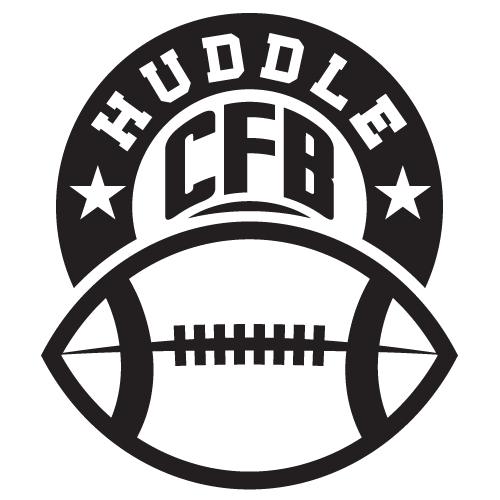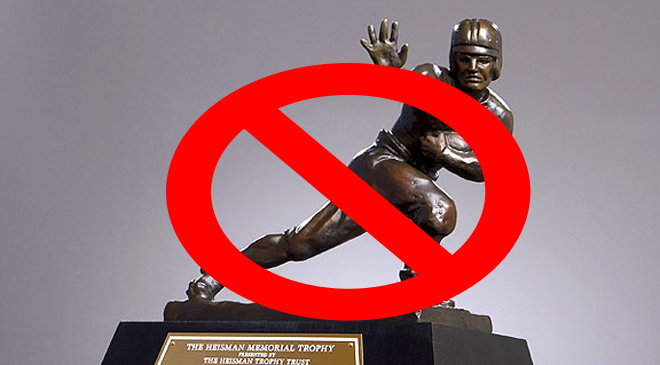2003: LARRY FITZGERALD
Ndamukong Suh ostensibly knocking Colt McCoy out of the running for the 2009 Heisman might lend credence to those who argue against awarding the Heisman after conference championship games, but Jason White’s win in 2003 suggests voters don’t always weigh those contests too heavily.
In a decision reflective of Oklahoma’s dubious advance to the BCS Championship Game, ballots dismissed a putrid performance from White in the Sooners’ 35-7, Big 12 Championship Game loss to Kansas State. White threw two of his eight, regular-season interceptions that night, went without a touchdown and completed just 54 percent of his pass attempts. He was given the benefit of the doubt despite limping into New York City, having put up some monster numbers in Kevin Sumlin’s offense for the 12 games prior.
As good as White was statistically, however, his selection over Larry Fitzgerald is perhaps the strongest evidence yet that the 21st Century Heisman is just a quarterbacks’ award.
Fitzgerald was otherworldly for Pitt in 2003. In the Panthers’ 12 games before the Heisman vote, he snagged 87 passes for an incredible 1,597 yards. Fitzgerald’s pace was comparable to that of Amari Cooper in the Alabama star’s 2014 campaign, albeit in an era before uptempo and pass-happy offenses were as prevalent.
But even more astounding is that Fitzgerald scored 22 times in the regular season. That’s more than the nation’s leader every season since, save Devante Adams in 2013 and Stedman Bailey in 2012.
By voting for the status quo — gaudy quarterback numbers on a national title contending team — Heisman voters failed to honor a truly landmark season that set the course for the sport in the decade to come.



[…] The general consensus between Heisman and AP voters for the last two decades reiterates the controversy behind this year’s award. The race between runner-up Christian McCaffrey and winner Derrick Henry, with Clemson’s Deshaun Watson running a distant third, wasn’t particularly close — certainly not like 2009, the last time the AP Player of the Year and Heisman differed (and not-so-coincidentally, one of my biggest Heisman snubs of the last three decades). […]